MEPERIDINE - ORAL
PHONETIC PRONUNCIATION: (me-PER-i-deen)
COMMON BRAND NAME(S): Demerol
GENERIC NAME(S): meperidine HCl
Uses
USES: Meperidine is used to help relieve moderate to severe pain. It belongs to a class of drugs known as opioid (narcotic) analgesics and is similar to morphine. It works in the brain to change how your body feels and responds to pain. Meperidine should not be used to treat long-term or ongoing pain. It should only be used to treat sudden episodes of moderate to severe pain. See also Precautions section.
How to use MEPERIDINE - ORAL
HOW TO USE: Read the Medication Guide provided by your pharmacist before you start taking meperidine and each time you get a refill. If you have any questions, ask your doctor or pharmacist. Take this medication by mouth as directed by your doctor, usually every 3 to 4 hours as needed. You may take this drug with or without food. If you have nausea, it may help to take this drug with food. Ask your doctor or pharmacist about other ways to decrease nausea (such as lying down for 1 to 2 hours with as little head movement as possible). If you are using the liquid form of this medication, carefully measure the dose using a special measuring device/spoon. Do not use a household spoon because you may not get the correct dose. Make sure not to confuse the dose of meperidine liquid in milligrams (mg) with the dose in milliliters (mL). Ask your pharmacist or doctor to show you the right way to measure your dose. Mix your dose with one-half glass of water (4 ounces/120 milliliters) and drink right away. Mixing your dose in water before you take it will prevent your mouth from becoming numb. The dosage is based on your medical condition and response to treatment. Do not increase your dose or use this drug more often or for longer than prescribed because your risk of side effects may increase. Properly stop the medication when so directed. Pain medications work best if they are used as the first signs of pain occur. If you wait until the pain has worsened, the medication may not work as well. This medication may cause withdrawal reactions, especially if it has been used regularly for a long time or in high doses. In such cases, withdrawal symptoms (such as restlessness, watering eyes, runny nose, nausea, sweating, muscle aches) may occur if you suddenly stop using this medication. To prevent withdrawal reactions, your doctor may reduce your dose gradually. Ask your doctor or pharmacist for more details, and report any withdrawal reactions right away. When this medication is used for a long time, it may not work as well. Talk with your doctor if this medication stops working well. Though it helps many people, this medication may sometimes cause addiction. This risk may be higher if you have a substance use disorder (such as overuse of or addiction to drugs/alcohol). Take this medication exactly as prescribed to lower the risk of addiction. Ask your doctor or pharmacist for more details. Tell your doctor if your pain persists or worsens.
Side Effects
Precautions
Interactions
Overdose
Images
Reviews
Faq for MEPERIDINE - ORAL
Meperidine is commonly used to relieve moderate to severe pain.
Take Meperidine exactly as prescribed by your doctor. It is usually taken every 3 to 4 hours as needed for pain relief.
Common side effects include dizziness, drowsiness, nausea, vomiting, constipation, and sweating. Contact your doctor if these side effects become severe or persist.
Yes, Meperidine can be addictive if used for a long period of time or in higher doses than prescribed. It is important to follow your doctor's instructions and not misuse or abuse this medication.
Meperidine may interact with other medications such as MAO inhibitors, certain antidepressants, and opioids. It is important to inform your doctor about all the medications you are taking to avoid any potential drug interactions.
Meperidine should not be used by individuals with severe breathing problems, bowel obstruction, or those who have recently used MAO inhibitors. It should be used with caution in the elderly, debilitated patients, and individuals with liver or kidney problems.
Meperidine should be used during pregnancy only if clearly needed as it may harm the unborn baby. It may also pass into breast milk and harm a nursing infant. Consult your doctor before using this medication if pregnant or breastfeeding.
If you miss a dose, take it as soon as you remember. However, if it is close to the time for your next dose, skip the missed dose and resume your regular dosing schedule. Do not double the dose to catch up.
No, you should not suddenly stop taking Meperidine without consulting your doctor. A gradual reduction in the dose is usually recommended to avoid withdrawal symptoms.
Warning
WARNING: Meperidine has a risk for abuse and addiction, which can lead to overdose and death. Meperidine may also cause severe, possibly fatal, breathing problems. To lower your risk, your doctor should have you take the smallest dose of meperidine that works, and take it for the shortest possible time. See also How to Use section for more information about addiction. The risk for severe breathing problems is higher when you start this medication and after a dose increase, or if you take the wrong dose/strength. Taking this medication with alcohol or other drugs that can cause drowsiness or breathing problems may cause very serious side effects, including death. Also, other medications can affect the removal of meperidine from your body, which may affect how meperidine works. Be sure you know how to take meperidine and what other drugs you should avoid taking with it. See also Drug Interactions section. Get medical help right away if any of these very serious side effects occur: slow/shallow breathing, unusual lightheadedness, severe drowsiness/dizziness, difficulty waking up. Keep this medicine in a safe place to prevent theft, misuse, or abuse. If someone accidentally swallows this drug, get medical help right away. Before using this medication, women of childbearing age should talk with their doctor(s) about the risks and benefits. Tell your doctor if you are pregnant or if you plan to become pregnant. During pregnancy, this medication should be used only when clearly needed. It may slightly increase the risk of birth defects if used during the first two months of pregnancy. Also, using it for a long time or in high doses near the expected delivery date may harm the unborn baby. To lessen the risk, take the smallest effective dose for the shortest possible time. Babies born to mothers who use this drug for a long time may develop severe (possibly fatal) withdrawal symptoms. Tell the doctor right away if you notice any symptoms in your newborn baby such as crying that doesn't stop, slow/shallow breathing, irritability, shaking, vomiting, diarrhea, poor feeding, or difficulty gaining weight.
Disclaimer
IMPORTANT: HOW TO USE THIS INFORMATION: This is a summary and does NOT have all possible information about this product. This information does not assure that this product is safe, effective, or appropriate for you. This information is not individual medical advice and does not substitute for the advice of your health care professional. Always ask your health care professional for complete information about this product and your specific health needs.

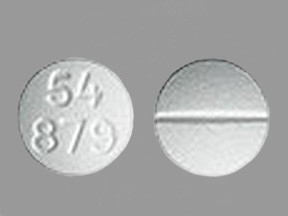
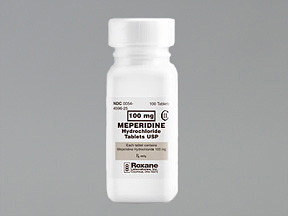
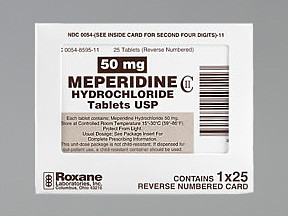
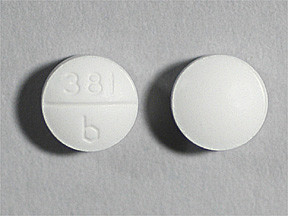
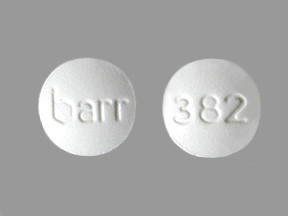
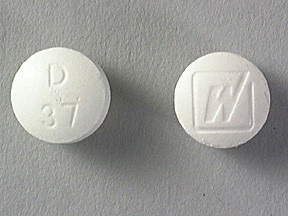

No Reviews Yet